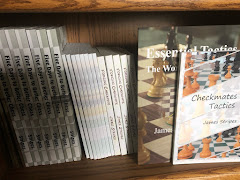In between Beale and Hoffman, William Lewis (1787-1870) produced an edition of Greco's games, Gioachino Greco on the Games of Chess (London 1819), which was based on a French edition of Greco's games. In Lewis, Greco's games are 168 variations of 47 games.
In Beale's book, the games are called "Gambetts" and numbered with roman numerals. The first game in the book is also in Hoffman and the Oxford Encyclopedia, but the final move differs.
Gambett I (Greco) [C23]
Beale 1656
1.e4 e5 2.Bc4 Bc5 3.Qe2 Qe7 4.f4 Bxg1 5.Rxg1 exf4 6.d4 Qh4+ 7.g3 fxg3 8.Rxg3 Nf6 9.Nc3 Nh5 10.Bxf7+ Kxf7
White to move
11.Bg5 Nxg3 12.Qf3+ Kg6 13.Bxh4 Nh5 14.Qf5+ Kh6 15.Bg5#
15.Qg5# is given in ChessBase per Hoffman; Levy, and O'Connell; and Lewis.
1–0
This game is in Lewis 1819, 70; Hoffman 1900, 110; Levy, and O'Connell 1981, 4; and Beal 1656, 18-19.
My eBook, Essential Tactics: Building a Foundation for Chess Skill (2017), contains a composed position that I derived from the diagram position above.
White to move
My method in creating that book was to take positions from actual games and typical structures that might occur in games, and then strip away the extraneous pieces. I made such modifications necessary that in most cases there is one clearly best move, and often only one winning move (or drawing move in certain cases).

















No comments:
Post a Comment